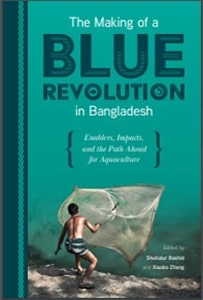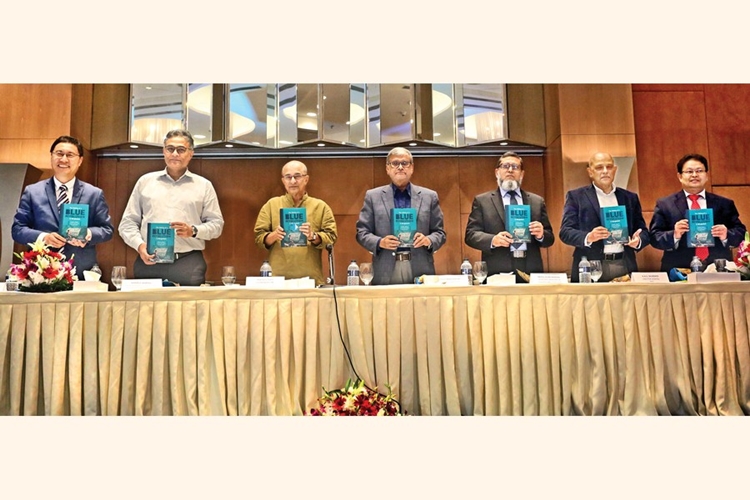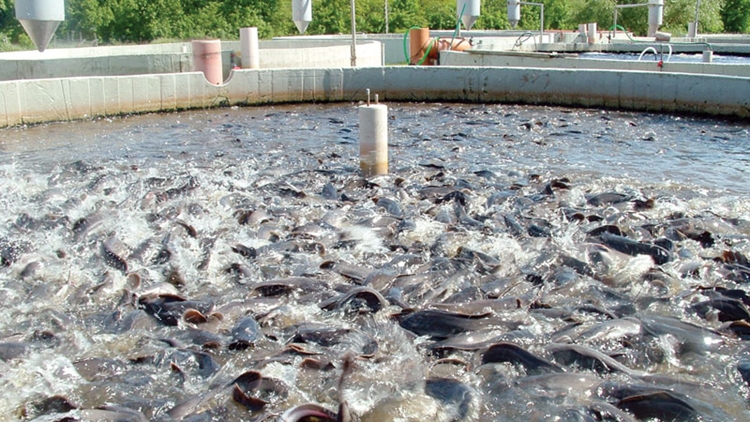SAM
Published:2019-10-28 22:06:36 BdST
Policy reforms to boost fish production stressed
FT ONLINE
Scientists, agricultural experts and researchers from international organisations on Sunday stressed the need for policy reforms and targeted investments for creating greater access to fish as a source of nutrition for poor households.
Though aquaculture has enabled over 2 million people to escape poverty from 2000-2010, the country’s fisheries policy is yet to adapt the changes eventually made by the aquaculture, they said at the function while unveiling a book titled “The Making of a Blue Revolution in Bangladesh: Enablers, Impacts and the Path ahead of Aquaculture” at a local hotel.
Growth in aquaculture which also called a blue revolution has been responsible for almost 10 percent of the overall poverty reduction in Bangladesh from 2000-2010. In other words, of the 18 million Bangladeshis who escaped poverty during 2000-2010, more than 2 million managed to do so because of aquaculture, they said.
Bangladesh Policy Research and Strategy Support Program under the International Food Policy Research Institute (IFPRI) arranged the programme with Fisheries and Livestock Ministry Secretary Raisul Alam Mondol in the chair.
 IFPRI’s South Asia Director and also a co-editor of the book Dr. Shahidur Rashid said the book provides the evidence needed to improve aquaculture policies in Bangladesh as the book, based on the first comprehensive survey of the primary fish value chain in the country, examines three broad aspects of Bangladeshi fish aquaculture’s transformation.
IFPRI’s South Asia Director and also a co-editor of the book Dr. Shahidur Rashid said the book provides the evidence needed to improve aquaculture policies in Bangladesh as the book, based on the first comprehensive survey of the primary fish value chain in the country, examines three broad aspects of Bangladeshi fish aquaculture’s transformation.
Increased aquaculture investment and productivity, fish production will continue to grow through 2030 and outpace demand. “With the right targeted investments, poor households will benefit from even lower farmed fish prices,” added Rashid.
The share of fish aquaculture or ‘pond culture’, that is, cultivation of fish in ponds, both for household and commercial consumption, in fish production increased from 30 per cent to 47 per cent from 2000 to 2015.
Improved technology, infrastructure and information lowered transaction costs; and this combined with value-chain innovation, spurred the commercialization of ‘pond fisheries.’

Planning Minister Abdul Mannan attended the function as chief guest while Energy Advisor to the Prime Minister Dr. Tawfiq-e-Elahi Chowdhury was the guest of honor.
Between 2000 and 2010, fish consumption in both rural and urban areas increased from 13.4 kg to 18.1 kg while prices of the farmed fish dropped by 12 percent during the same period, despite an increase in the population and demand for fish, according to the book.
Senior Secretary, Power Division, Ministry of Energy and Power Dr. Kaikaus Ahmad, Director General of BIDS Dr. KAS Murshid were special guests.
Senior research fellow at IFPRI and distinguished Professor of Economics at the Peking University, China Dr. Xiaobo Zhang, and Dr. Akhter Ahmed, Country Representative of IFPRI Bangladesh, Dr. Shoumi Mustafa, Senior Research Coordinator, IFPRI, also spoke.
Unauthorized use or reproduction of The Finance Today content for commercial purposes is strictly prohibited.


